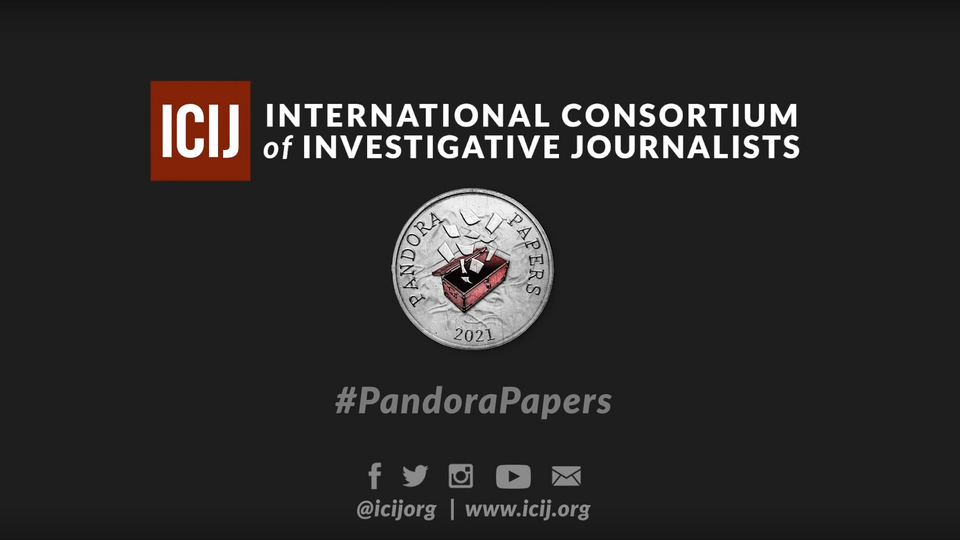Massive leak of financial documents allegedly ties world leaders to secret stores of wealth, including King Abdullah of Jordan, Czech PM Andrej Babis, and associates of Russian President Vladimir Putin.

More than a dozen heads of state and government, including the King of Jordan and the Czech prime minister, have hidden millions in offshore tax havens, according to an investigation published by the ICIJ media consortium.
The so-called "Pandora Papers" investigation – involving some 600 journalists from media including The Washington Post, the BBC and The Guardian – is based on the leak of some 11.9 million documents from 14 financial services companies around the world.
Some 35 current and former leaders are featured in the documents analysed by the International Consortium of Investigative Journalists (ICIJ) – facing allegations ranging from corruption to money laundering and global tax
NEW: #PandoraPapers reveals the inner workings of a shadow economy that benefits the wealthy and well-connected at the expense of everyone else.
— ICIJ (@ICIJorg) October 3, 2021
Brought to you by ICIJ and 600+ journalists, the largest collaboration in journalism history. 🧵 https://t.co/qXMuUcqPc4
Babis denies wrongdoing
The documents notably expose how King Abdullah II created a network of offshore companies and tax havens to amass a $100 million property empire from Malibu, California to Washington and London.
The BBC cited lawyers for King Abdullah saying all the properties were bought with personal wealth, and that it was common practice for high profile individuals to purchase properties via offshore companies for privacy and security reasons.
The documents also show Czech Prime Minister Andrej Babis – facing an election later this week – failed to declare an offshore investment company used to purchase a chateau worth $22 million in the south of France.
Babis, however, denied any wrongdoing.
"The money left a Czech bank, was taxed, it was my money, and returned to a Czech bank," Babis, who is campaigning for an October 8-9 election, said in a TV debate.
Asked if he had broken any law in the Czech Republic, France, or the United States in relation to the 2009 property purchase, he said: "Of course not...It was taxed money."
Babis said a previously done audit proved he had sufficient and taxed income for the transaction.
• 35 current and former world leaders
— ICIJ (@ICIJorg) October 3, 2021
• 330+ politicians and public officials
• A global list of fugitives, con artists and murderers.
We've uncovered their financial secrets in the #PandoraPapers: The biggest journalism partnership in history. https://t.co/5JF4u2V4eN pic.twitter.com/ELLPYRDNIg
Series of mass ICIJ leaks
In total, the ICIJ found links between almost 1,000 companies in offshore havens and 336 high-level politicians and public officials, including country leaders, cabinet ministers, ambassadors, and others.
More than two-thirds of the companies were set up in the British Virgin Islands.
In most countries, the ICIJ stresses, it is not illegal to have assets offshore or to use shell companies to do business across national borders.
But such revelations are no less of an embarrassment for leaders who may have campaigned publicly against corruption, or advocated austerity measures at home.
The Pandora Papers are the latest in a series of mass ICIJ leaks of financial documents that started with LuxLeaks in 2014 and were followed by the Panama Papers, the Paradise Papers, and FinCen.
The documents behind the latest investigation are drawn from financial services companies in countries including the British Virgin Islands, Panama, Belize, Cyprus, the United Arab Emirates, Singapore, and Switzerland.
Shakira, Tendulkar named in report
As well as politicians, the public figures exposed included the Colombian singer Shakira, the German supermodel Claudia Schiffer and the Indian cricket legend Sachin Tendulkar.
Representatives for all three told the ICIJ the investments were legitimate and denied tax avoidance.
"I guess it mostly demonstrates that the people that could end the secrecy of offshore, could end what's going on, are themselves benefiting from it," the ICIJ's director Gerard Ryle said in a video accompanying the investigation.
"We're looking at trillions of dollars."
For Maira Martini, a policy expert with Transparency International, the latest investigation once more offers "clear evidence of how the offshore industry promotes corruption and financial crime while obstructing justice."
"This business model cannot go on," she said.
Social media is bold.
Social media is young.
Social media raises questions.
Social media is not satisfied with an answer.
Social media looks at the big picture.
Social media is interested in every detail.
social media is curious.
Social media is free.
Social media is irreplaceable.
But never irrelevant.
Social media is you.
(With input from news agency language)
If you like this story, share it with a friend!
We are a non-profit organization. Help us financially to keep our journalism free from government and corporate pressure














0 Comments